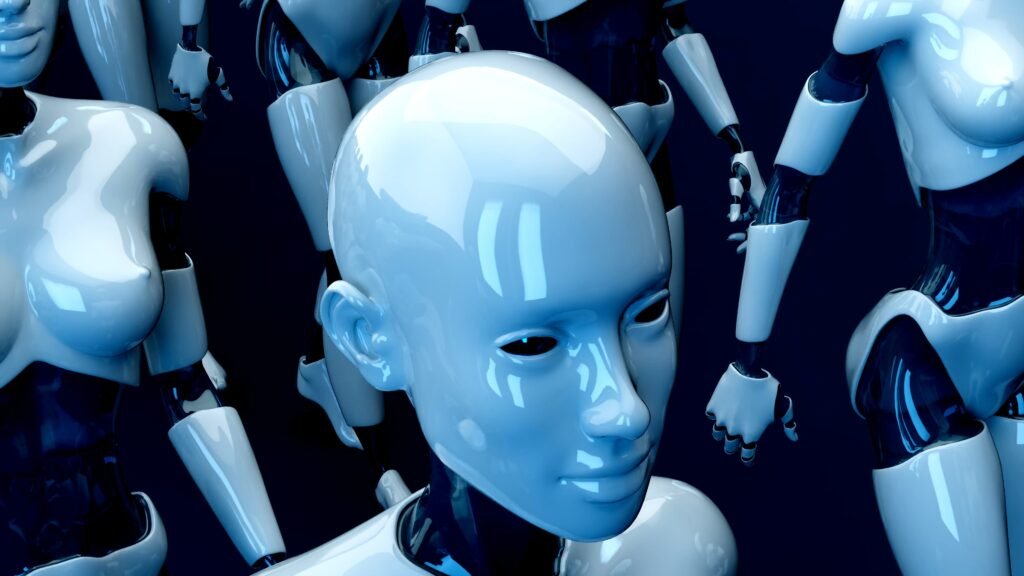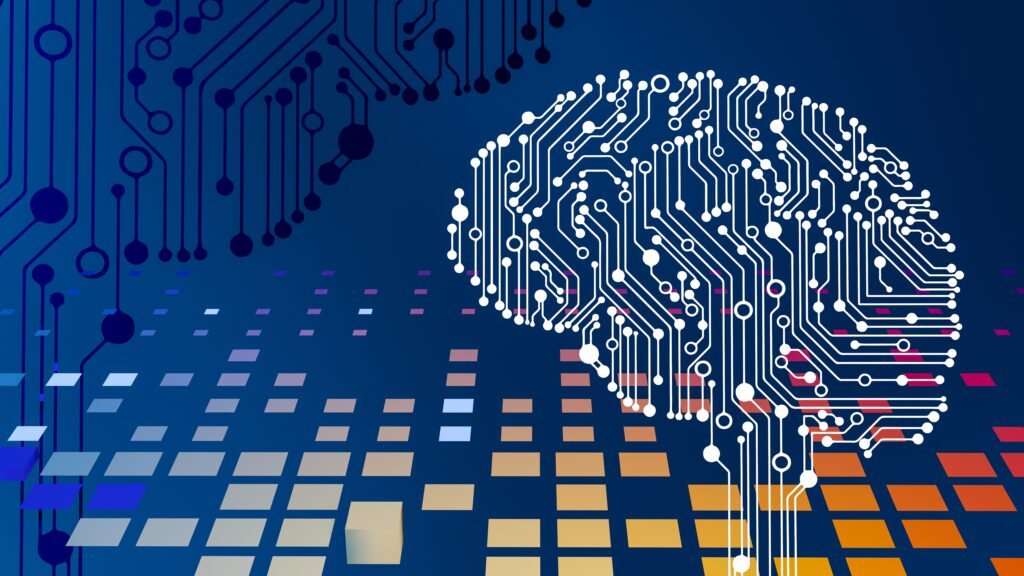Artificial Intelligence (AI) is a concept that often gets misunderstood, conjuring up images of futuristic robots or mind-boggling smart devices. However, in reality, AI refers to machines capable of responding to stimuli and making decisions that require human-level expertise. These AI systems possess three key qualities: intentionality, intelligence, and adaptability. Intentionality means that AI algorithms are designed to make decisions based on real-time data and analysis, while intelligence allows them to utilize machine learning and data analytics. Additionally, the adaptability of AI systems enables them to learn and adjust as circumstances change. It is crucial for AI to conform to human values and be unbiased, fair, and just. This transformative technology finds its applications in diverse fields like transportation, finance, environmental sustainability, and education.

What is Artificial Intelligence?
Artificial Intelligence (AI) is a concept that is often poorly understood and confused with super-powered robots or hyper-intelligent devices. However, AI is much more than that. It refers to machines that can respond to stimulation and make decisions that require human-level expertise. AI systems have three key qualities: intentionality, intelligence, and adaptability. These qualities enable AI to perform tasks that were once only possible for humans.
Key Qualities of AI Systems
Intentionality
One of the key qualities of AI systems is intentionality. This means that AI algorithms are designed to make decisions based on real-time data and analysis. By constantly analyzing data and processing information in real-time, AI systems are able to make informed decisions quickly and efficiently. This quality allows AI to perform tasks that require instant decision-making, without the need for human intervention.
Intelligence
Intelligence is another essential quality of AI systems. AI is able to use machine learning and data analytics to make intelligent decisions. Through machine learning algorithms, AI systems are able to learn from past experiences and improve their performance over time. This ability to learn and adapt enables AI to handle complex tasks and solve problems in a way that replicates human intelligence.
Adaptability
Adaptability is the third key quality of AI systems. AI is designed to learn and adjust as circumstances or conditions change. This adaptability allows AI to effectively handle situations that may be unpredictable or dynamic. By constantly analyzing and adjusting to new information, AI systems can continue to perform at a high level, even in changing environments.
Intentionality in AI
Intentionality is a quality that allows AI to make decisions based on real-time data and analysis. This means that AI algorithms are constantly collecting data, analyzing it, and using it to inform their decision-making process. By doing so, AI is able to make informed decisions quickly and efficiently. For example, in autonomous vehicles, AI algorithms use real-time data from sensors to make split-second decisions, such as when to apply the brakes or change lanes.
Another aspect of intentionality in AI is the use of algorithms to drive decision-making. These algorithms are carefully designed to make intelligent decisions based on the input data. By using algorithms, AI systems are able to process large amounts of information and make decisions that would be impractical or impossible for humans to make manually. This enables AI to perform complex tasks with speed and accuracy.
Intelligence in AI
Intelligence is a crucial quality that allows AI to use machine learning and data analytics to make intelligent decisions. Machine learning is a process in which AI systems learn from past experiences and improve their performance over time. By analyzing patterns in data, AI can identify trends and make predictions or recommendations based on that information.
Data analytics is another aspect of AI intelligence. By analyzing large volumes of data, AI systems can extract valuable insights and use them to make informed decisions. This ability to process and analyze data at a rapid pace allows AI to perform tasks such as detecting fraud in financial transactions or diagnosing medical conditions based on symptoms.
Intelligent decision-making is the ultimate goal of AI. By combining machine learning and data analytics, AI systems can make decisions that are both accurate and efficient. This intelligence allows AI to perform tasks that require complex reasoning and problem-solving skills, making it a valuable tool across various industries.

Adaptability in AI
Adaptability is a critical quality of AI systems that allows them to learn and adjust as circumstances or conditions change. AI algorithms are designed to continuously analyze new information and update their knowledge and understanding accordingly. This ability to learn and adapt is what sets AI apart from traditional computer systems.
Learning and adjustment are fundamental aspects of adaptability in AI. Through machine learning techniques, AI systems can study and understand patterns in data, allowing them to learn and improve their performance over time. As new information becomes available, AI systems can adjust their decision-making process to incorporate this new knowledge, resulting in more accurate and efficient performance.
Dealing with changing circumstances is another aspect of adaptability in AI. AI systems are designed to handle situations that may be unpredictable or dynamic. For example, in autonomous robotics, AI algorithms can adjust their movements and behaviors based on changes in the environment, such as obstacles or variations in terrain. This adaptability allows AI to operate effectively in real-world conditions and perform tasks that require flexibility and responsiveness.
Ethical Considerations in AI
While AI brings numerous benefits, it is important to consider the ethical implications associated with its development and use. As AI systems become more intelligent and capable, it is crucial for them to conform to human values and principles. This means that AI systems should embody ethical standards and prioritize the welfare and well-being of individuals and society as a whole.
One ethical consideration in AI is the need for unbiased decision-making. AI algorithms should be designed in a way that ensures fairness and eliminates any potential biases that may result in discriminatory outcomes. By removing biases from AI systems, we can ensure that they make decisions that are objective and impartial, promoting fairness and justice.
Another ethical consideration is the conformity to human values. AI systems should be developed with a thorough understanding of human values and should align with those values. This means that AI should respect privacy, confidentiality, and human rights. By incorporating human values into the design and implementation of AI, we can ensure that AI systems enhance our lives in a way that is ethically responsible.
Fairness and justice are also crucial ethical considerations in AI. AI systems should not only make unbiased decisions but also treat individuals fairly and justly. This means that AI should not discriminate against individuals based on factors such as race, gender, or socioeconomic status. By promoting fairness and justice in AI, we can ensure that AI benefits all members of society, regardless of their backgrounds or circumstances.

Applications of AI
AI has a wide range of applications across various fields. Its ability to make intelligent decisions and perform complex tasks has made it an invaluable tool in many industries. Here are a few examples of how AI is being used in different sectors:
Transportation
In the transportation industry, AI is being used to improve safety and efficiency. AI algorithms are used in autonomous vehicles to analyze data from sensors and make real-time decisions, such as adjusting speed or navigating through traffic. AI is also used in traffic management systems to optimize routes, reduce congestion, and improve overall transportation operations.
Finance
AI has revolutionized the finance industry by enabling automated processes and improving decision-making. AI algorithms are used in fraud detection systems to identify suspicious activities and prevent financial crimes. AI is also used in algorithmic trading, where it analyzes market data and makes investment decisions based on trends and patterns. Additionally, AI-powered chatbots are being used to provide customer support and personalized financial advice.
Environmental Sustainability
AI is playing a significant role in promoting environmental sustainability. It is used in climate modeling to analyze historical data and make predictions about future climate patterns. AI algorithms are also used in energy management systems to optimize energy consumption, reduce waste, and improve overall efficiency. AI is even being used in agriculture to optimize crop yield and minimize resource usage, contributing to sustainable farming practices.
Education
AI is transforming the education sector by enabling personalized learning experiences and improving educational outcomes. AI-powered adaptive learning platforms analyze student data and provide customized content and recommendations based on their individual needs and learning styles. AI is also used in grading systems, where it automates the grading process and provides timely feedback to students. Additionally, AI-powered virtual assistants are being used to enhance administrative tasks and improve communication within educational institutions.
In conclusion, AI is a concept that goes beyond the realm of super-powered robots and hyper-intelligent devices. It refers to machines that can respond to stimulation and make decisions that require human-level expertise. The key qualities of AI systems, namely intentionality, intelligence, and adaptability, enable AI to perform tasks that were once only possible for humans. With careful consideration of ethical implications and a wide range of applications across various fields, AI continues to advance and enhance our lives in a way that is both transformative and beneficial.




